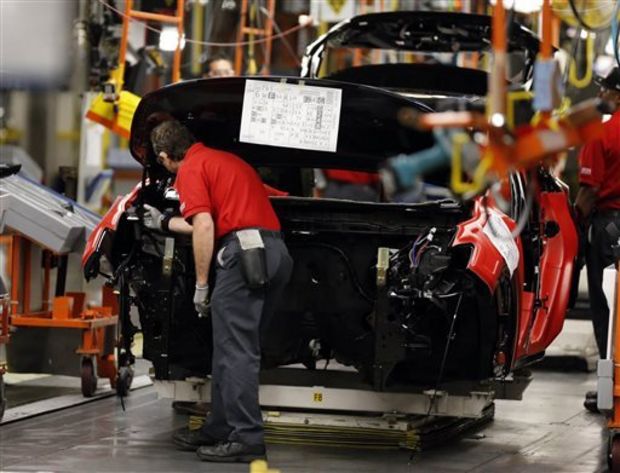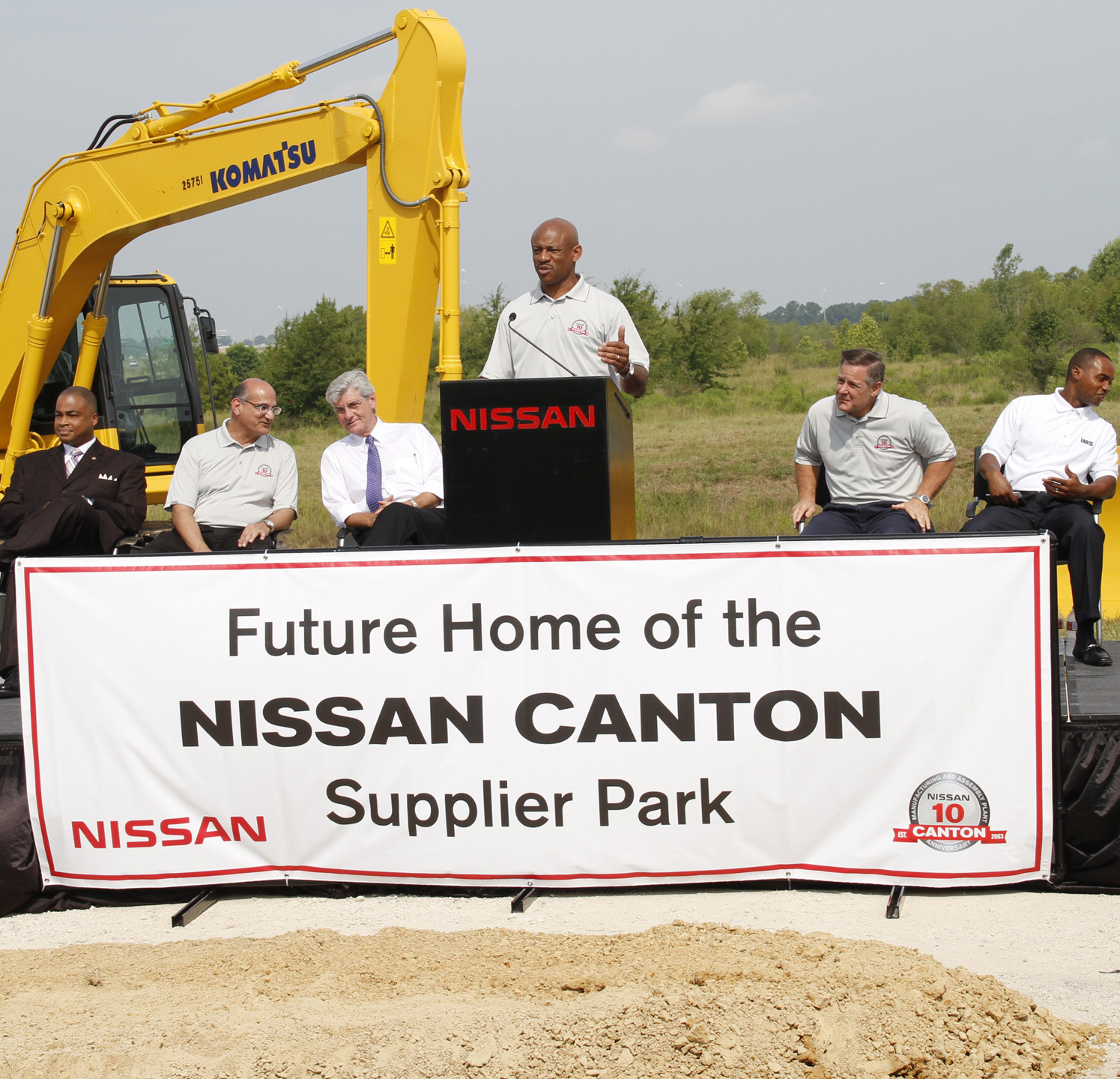

CANTON, Mississippi (AP) — Nissan Motor Co. says it wants to produce 507,000 vehicles a year at its Mississippi plant by 2017, an expansion that would add about 1,000 employees to the current 6,300 workers at the complex.
John Martin, Nissan North America’s senior vice president for manufacturing, supply chain management and purchasing, made the announcement Wednesday at an event unveiling the first Murano SUV made at the plant. Nissan shifted production of the Murano from Japan to Mississippi in an effort to build more than 85 percent of vehicles sold in the U.S. in North America.
Martin said the expansion, which includes adding a third shift to the production line that makes Altima sedans, is necessary to meet sales goals. The company is trying to sell 8 percent of all cars produced worldwide. It’s already above that level in the U.S., having grown to 8.6 percent of the market so far this year.
Nissan’s Canton plant currently has an annual capacity of 480,000 vehicles, and will make about 300,000 this year.
“To build to 507, we do a couple of crazy tricks,” Martin said. “We have lunch breaks but we work through them. We have special squads of people that keep the lines moving.”
Small SUVs like the Murano have been the fastest growing segment of the U.S. auto market this year, and now make up one out of every four vehicles sold. Martin said that the plant, which will export Murano models to up to 100 countries, will struggle to meet demand at a rate of 94,000 a year once full output is reached.
“We know what the customer wants,” Martin said. “They want that high driving position, giving them the forward view of the road.”
The Canton plant is now making eight models. Besides the Murano, they include the Armada and Xterra SUVs, the Titan and Frontier pickup trucks, the NV cargo and passenger vans and the Altima sedan. Sentra sedans were made in Canton for about a year and half, but that production has now returned to Mexico.
The company will start making a new model of its Titan pickup in Canton next year, which like the Murano could drive volume growth and the need for further employees. Nissan is investing $400 million to retool for new Titan production. Martin said the company is also investing $60 million to expand its paint shop.
Martin said the plant is actually reducing the need for new workers by improving productivity. For example, Nissan is automating some tasks to reduce walking, moving and heavy lifting by workers.
The company has invested $2.8 billion in the plant, which opened in 2003. The state government has given $378 million in aid, while state and local governments have contributed hundreds of millions more in tax breaks. Gov. Phil Bryant said Wednesday he would be eager to subsidize further expansion.
Many of the workers at the plant are employed by contractors and not Nissan, making lower pay rates. Such contract workers have been an issue in continuing efforts by the United Auto Workers to unionize employees in Canton.

